
The Fellow Programme in Management (FPM) at Indira School of Business Studies PGDM, provides a robust academic and research framework spanning various management domains, tailored for scholars, students, and professionals alike, all fuelled by a shared commitment to influence business management. The objective is to cultivate scholarly expertise infused with critical analysis, problem-solving skills, and the capacity to provide managerial insights to meet both industry and societal demands.
We offer a full-time fellow Programme in Management (FPM), which centers around quality research. The student of the FPM programme must complete the defined course work and successfully defend the submitted thesis obliging to the guidelines of the programme.
The Programme is approved by the All India Council for Technical Education (AICTE).
The objective of FPM is to foster and embark on the research environment for aspiring professionals through effective mentoring and guidance. The goal is to develop students with advance research capabilities and driving them to be able to contribute to the research field. The FPM is designed for professionals seeking to get a comprehensive doctoral-level program in diverse specialization and season them to effectively use the learned competencies in corporate and academic fields.
A. Course Structure
Course Duration – 03 – 05 years
Total number of seats – 20
B. Credit Requirements
In partial fulfilment of the requirement of the Fellow Programme, a minimum number of Course credits are required to be earned as prescribed below.
| Particular | Code No. | Course Title | Credits | Marks |
|---|---|---|---|---|
| Module 1 | FP01 | Research Methodology | 3 | 150 |
| FP02 | Managerial Statistics | 3 | 150 | |
| FP03 | General Management | 3 | 150 | |
| FP04 | System Approach to Management | 3 | 150 | |
| Module 2 | FP05 | 3 Stream specific Courses of 3 credits each | 9 | 450 |
| FP06 | Credit Seminar (General) | 3 | 150 | |
| Module 3 | FP07 | Credit Seminar (Specific) | 3 | 150 |
| FP08 | Review paper based on the literature on the Thesis related topic | 3 | 150 | |
| Total Credit | 30 | 1500 | ||
C. Stages of Course Completion
D. Duration for earning Credit.
All the credits specified above shall be earned within a maximum of three years from the date of admission to the Programme. Extension after the three years shall be approved by the Director for a period of one/two years with a review of progress every six months. Final approval shall be given by the Director of the Institution.
E. Registration Seminar and Progress Seminar
After Course work each research scholar needs to register his/ her research proposal. The registration procedure is given below.
F. Submission and Evaluation of the Synopsis and Thesis
1. Pre-Synopsis Seminar
Every research scholar before submission of his / her thesis must give pre-synopsis seminar at the Institution. The procedure for the pre-synopsis seminar is as follows
On receipt of Synopsis, the Director shall draw up a list of 6 possible examiners of the Thesis in consultation with the Research Advisory Committee and Guide(s). The examiners shall be from outside Institution, one from India and one from abroad, having good academic and research standing in the field. Two examiners shall be selected by the Director from the list.
2. Submission of Thesis
The Thesis shall be submitted in six type written/ printed copies and a soft copy with necessary Certificates and clearance within a period of 6 months from the date of submission of the Synopsis
3. Acceptance/Rejection of Thesis
The Thesis shall be accepted if all the examiners make positive recommendations. If recommendations for rejection or inconclusive recommendations are made by anyone of the examiner, Director shall refer the Thesis to another examiner or examiners(s) from the panel. If such a panel of examiner(s) rejects the Thesis, it shall stand rejected.
4. Re-submission of the Thesis
A Thesis which needs modification/ revision shall be resubmitted after revision within a period of one year. Rejection of the Thesis after re-submission shall normally disqualify the candidate of further consideration for the award of the Fellow in Management.
5. Viva-Voce
On acceptance of the Thesis, the Director shall appoint a panel of examiners to conduct a viva- voce examination and open defence at which the candidate shall be required to defend his/ her Thesis. The panel of examiners shall consist of:
The panel of Examiners shall submit their Report to the Director of the Institution. If a Thesis has been accepted, but the candidate fails to defend it successfully at the Vice-voce examination, he/ she shall reappear for the viva-voce examination within six months.
6. Award of Fellow in Management
On successful completion of the viva-voce and on the recommendations of the Institution’s Governing Board, the Institution shall award “Fellow in Management” to the Research scholar. The title of the Thesis shall be mentioned in the Certificate of award.
7. General Regulations
a. Application Procedure
The application shall be made in the prescribed form available with the Institution. Attested copies of all the necessary Certificates and testimonials are to be attached with the applications. The candidate must submit an abstract of about 5000 words on the area of research interest (tentative research proposal) along with his/ her application
b. Selection Criteria
Selection for the Fellow Programme in the Institutions approved by AICTE for the Fellow Programme shall be based on the following criteria:
The decision of the Institution Selection Committee regarding admission shall be final. Communication shall be sent only to the selected candidates. The Institution shall not entertain any queries or correspondence in respect of those not selected.
(Physical Application Form/Online Application Form)
Call
020-66759496 (Sohel, Admission Officer)
020-66759404 (Enquiry Desk)
admission.fpm@indiraisbs.ac.in
Fees
Application Fee – Rs.1,500
Registration Fee – Rs. 2,500
Course Fee – Rs. 75,000 per year (1 to 5 years)
Examination Fee - Rs. 25000/- which includes an honorarium of US$250/- for foreign examiner and Rs. 5000/- Indian Examiner must be paid along with the Thesis submission.
Eligibility
The admission process for the PGDM institute at ISBS is strictly merit-based. Prior to applying, candidates must have a written test score from any of the following exams: AICTE-CMAT, CAT, XAT, MAT, ATMA, G-MAT, or MH-CET.
ISBS PGDM institute applicants will be shortlisted based on their preferences for the course/shift. The Indira Common Admission Process (ICAP) will play a crucial role in the selection process, incorporating various components with assigned weightages:
Normalization of percentile scores from different entrance tests will be done using a multiplier.
Steps for Indira Common Admission Process (ICAP):
Stage 1: Registration for ICAP Candidates will fill up the ICAP online registration form for GD, PI and Counseling, available on www.icap.indiraedu.com
Stage 2: GD /PI and Counseling Process Candidates must attend the ICAP process of GD, PI, and Counseling in their preferred city.
Stage 3: Merit List for Admission The merit list for admission will be published on the Institute's website.
For detailed procedures, visit www.icap.indiraedu.com
To be eligible for PGDM courses at our esteemed PGDM institute in Pune, candidates must have passed the degree examination from an AICTE/UGC recognized university with a minimum of 50% marks for the open category and a minimum of 45% marks for the reserved category. Fifty per cent of seats are reserved for Maharashtra domicile-reserved category candidates at our PGDM institute. Applications from such candidates must include relevant caste certificates, caste validity, and non-creamy layer certificates.
Candidates lacking these certificates at the time of application will be considered for open/general category seats at our PGDM institute in Pune. If an insufficient number of applications for reserved seats are received, the remaining seats will be converted into open/general category seats. Twenty per cent of the sanctioned seats are institute-level seats.
Final year degree students, awaiting results, can participate in the admission process at our PGDM institute, provided they have a certificate from their college/university confirming their status as final year students. Additionally, candidates should have appeared in one of the specified entrance exams and possess a valid scorecard from our PGDM institute in Pune.
Post Graduate Diploma in Management (PGDM) is a 2 - year full time program
Semesters: 4 semesters
Choice Based Credit System(CBCS)
Classroom Teaching
The program is a two - year full time program approved by AICTE and is run in four semesters. The courses are organized around four semesters and are classified as Core Courses (Compulsory for all), Specialization Core Courses (Compulsory for students opting for the specialization viz. HR, Finance or Marketing), and Elective Courses (Choice based Courses).
The semester-wise distribution of courses based on their nature is as under:
|
PARTICULARS |
I |
II |
III |
IV |
TOTAL NUMBER OF COURSES |
TOTAL CREDITS |
TOTAL MARKS |
|
GENERIC CORE |
09 |
05 |
04 |
01 |
19 |
49 |
1500 |
|
SPECIALIZATION CORE |
---- |
06 |
04 |
03 |
13 |
39 |
1300 |
|
ELECTIVES |
---- |
02 |
02 |
02 |
06 |
12 |
300 |
|
TOTAL NUMBER OF COURSES |
09 |
13 |
10 |
06 |
38 |
---- |
------- |
|
TOTAL CREDITS |
25 |
33 |
26 |
16 |
----- |
100 |
------- |
|
TOTAL MARKS |
800 |
1000 |
800 |
500 |
----- |
----- |
3100 |
Each Student has to complete 100 Credits to qualify for certification in the following manner:
a) 19 core Courses amounting to 49 Credits are compulsory for all students regardless of specialization.
b) Student would opt for specialization in Semester-II and have to complete all the 13 core specialization courses amounting to 39 Credits.
c) The remaining 12 credits he/she has to complete by opting for the specified number of electives from the set of electives being offered.
| No. | Category | 1st Year Fees- 2024-25/ Annual Fees PGDM General /PGDM E-Business Management/PGDM Marketing/ PGDM | 2nd Year Fees-2025-26 / Annual Fees PGDM General /PGDM E-Business Management/PGDM Marketing/ PGDM |
| 1 | Tuition Fees | INR 4,70,000 | INR 3,60,000 |
| 2 | Development Fees | INR 30,000 | INR 40,000 |
| Total | INR 5,00,000 | INR-4,00,000 |
Note: Cancellation of Admission and refund of Fees will be as per AICTE Policy
Enhancing employability has consistently been a primary focus at ISBS PGDM, a premier PGDM institute in Pune. Our commitment to fostering robust domain knowledge and cultivating industry-ready skills positions ISBS PGDM students as preferred candidates for leading organizations. With a thriving alumni community exceeding 5000 individuals, our graduates have successfully secured placements across diverse sectors and global locations.
The Career Leadership Development Program (CLDP), complemented by industry visits, strategic collaborations with professional bodies and associations such as MCCIA, PRME, and FICCI, and engaging in Industry-Academia initiatives like Brand Slam and Leadership Lecture Series, reflects our dedication to preparing students for the professional landscape at our PGDM institute in Pune. The integration of insights from industry professionals (OZONE), skill development initiatives, and structured sessions including Group Discussions and Personal Interviews further contribute to equipping students with the requisite domain knowledge and skills, offering them industry ready.
These proactive measures, alongside various other initiatives, have propelled the ISBS PGDM brand to be the preferred choice for recruitment by multinational corporations. It is this exceptional track record in employability that has positioned ISBS PGDM as the premier PGDM institute and business school in Pune, India.
Situated strategically along the Pune-Mumbai Expressway, the Indira School of Business Studies PGDM campus is a sprawling facility spanning over 7000 sq. ft. Committed to fostering an environment of continuous improvement and innovation, ISBS PGDM provides state-of-the-art technical support and facilities aimed at enriching both student learning and faculty effectiveness.
Key highlights of our campus include modern classrooms, seminar halls, syndicate rooms, and tutorial centers, all equipped with seamless Wi-Fi connectivity to create a conducive and memorable teaching and learning experience for both faculty and students. Each classroom is equipped with projection televisions, overhead projectors, and whiteboards.
ISBS PGDM, recognized as a leading PGDM institute in Pune, boasts innovative IT infrastructure, featuring the latest workstations and interactive smart classrooms with audiovisual units. The institute, known for its exceptional facilities as a PGDM institute in Pune, offers one-to-one and group video conferencing facilities. Wireless connectivity spans the entire campus, including the hostels of our PGDM institute. A dedicated 50 Mbps internet connection ensures 24x7 internet access, facilitating enhanced communication and collaboration between students, faculty, coordinators, and team members at our PGDM institute in Pune. Students benefit from personalized mailboxes on Microsoft Office365 and receive 25GB of free space on SkyDrive. The library, a key resource at our PGDM institute, provides digital access to reference books, and the IT infrastructure includes licensed software for project design, simulation, statistical analysis, and presentations. Campus security, both physical and data access, is managed through surveillance cameras and data access policies implemented using Microsoft Technology at our renowned PGDM institute in Pune.
Our library at ISBS PGDM, a renowned PGDM institute in Pune, features a dedicated multimedia digital library section, equipped with 50 in-house PCs and comprehensive audiovisual facilities. It houses an extensive collection of academic reference videos and CDs, including national and international titles, along with textbook CDs at the video resource center. The library, recognized as a leading PGDM institute in Pune, continually updates its collection with the latest videos from sources such as Video Education and Harvard Business Resources. The Video Resource Center enhances the learning experience for students at our PGDM institute. Users can surf the internet, access e-resources like AICTE-approved subscribed Pro-Quest Management ABI/Inform Global-Online databases, and browse multimedia digital library resources, including e-journals, e-books, previous question papers, syllabus booklets, and more. The digital library, designed to meet the evolving needs of modern students at our PGDM institute in Pune, also allows users to explore the library catalogue through the web Online Public Access Catalog (OPAC).
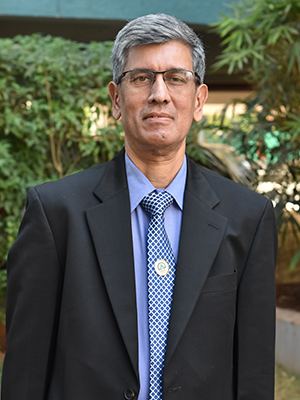
Dr Abhinav D Jog
HOD (Finance) & Professor
Qualification:PhD, MBA, M.Com, B.Com, CAIIB
Industrial Exp: 24 years
Academic Exp: 9.0
Research Papers: 6
Books Written:2
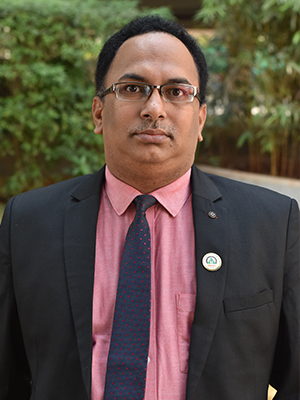
Dr. Mahesh Mangaonkar
HOD (Gen. Mgmt) & Professor
Qualification:Ph.D., M.Phil., MBA, PGDHRM (Gold Medalist), PGDIBO, NET, SET, B.E.
Industrial Exp: 0 years
Academic Exp: 17.9
Research Papers: 22
Books Written:0
Awards:01- Received Gold Medal from IGNOU, New Delhi for meritorious performance snd standing first in PGDHRM examination.
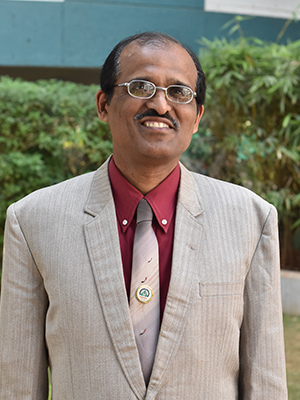
Prof. Mangesh Dande
HOD (Marketing - IInd shift) & Assistant Professor
Qualification:DME, MMS, DSM, DBM, SAP,NET
Industrial Exp: 25 years
Academic Exp: 11.0
Research Papers: 7
Books Written:0
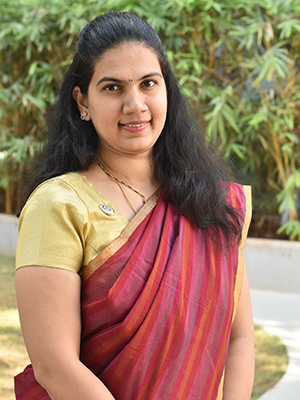
Prof.Amruta Deshpande
Assistant Professor
Qualification:MBA,
Industrial Exp: 1 years
Academic Exp: 12.0
Research Papers: 22
Books Written:2
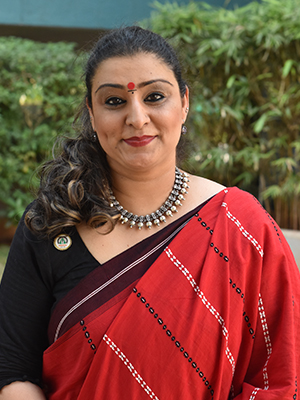
Prof. Neetu Randhawa
Assistant Professor
Qualification:M.B.A, BA
Industrial Exp: 0 years
Academic Exp: 11.0
Research Papers: 5
Books Written:0
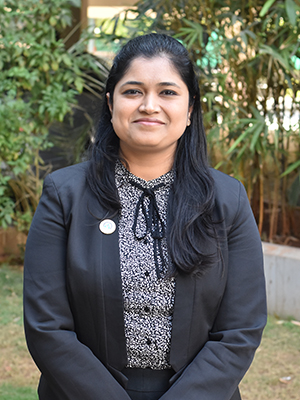
Dr. Anagha Bhope
Associate Professor
Qualification:PhD, MBA, PGDCMM, PGDIEM, BA, LLB
Industrial Exp: 2 years
Academic Exp: 7.0
Research Papers: 10
Books Written:0
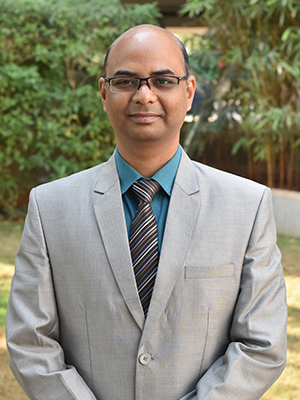
Dr. Rohan Das
Assistant Professor
Qualification:Ph.D, MBA, B.Sc.
Industrial Exp: 11 years
Academic Exp: 5.0
Research Papers: 6
Books Written:0
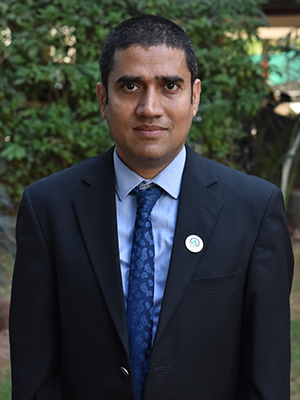
Dr. Chanakya Kumar
Associate Professor
Qualification:Ph.D, NET, MBA
Industrial Exp: 4 years
Academic Exp: 10.0
Research Papers: 6
Books Written:0
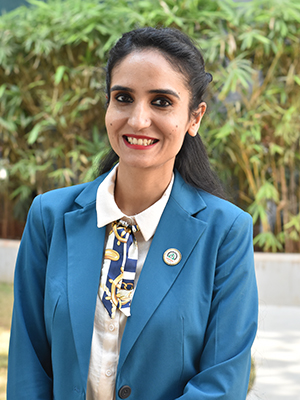
Prof. Shikha Sindhu
HOD (HR) & Assistant Professor, Head - MDP
Qualification:MPM, PGDM-HR, NET
Industrial Exp: 3 years
Academic Exp: 7.0
Research Papers: 8
Books Written:0
Awards:Best faculty in Human Resource- Education Leadersip Awards 2019
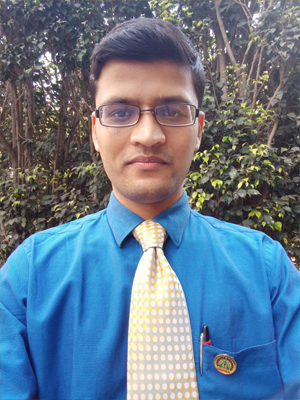
Prof. Puneet Bafna
Assistant Professor
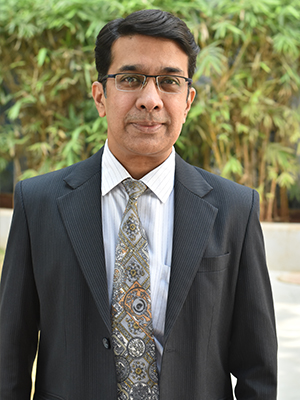
Prof. Anand Deo
Assistant Professor
Qualification:MMS , B.Com, PGDHRM, DIM, PGDIM
Industrial Exp: 27 years
Academic Exp: 4.0
Research Papers: 4
Books Written:0
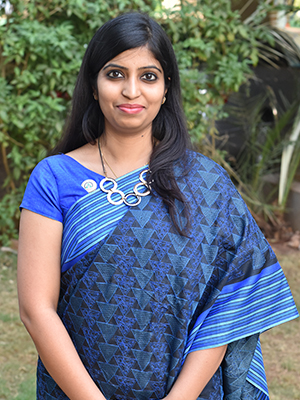
Prof. Sarita Agarwal
Assistant Professor
Qualification:MBA, M.Com, B.Com, NET
Industrial Exp: 0 years
Academic Exp: 6.0
Research Papers: 5
Books Written:2
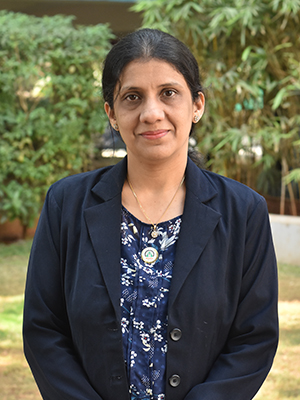
Dr. Gaganpreet Ahluwalia
Associate Professor
Qualification:PhD, MBA, MA, BBA
Industrial Exp: 0 years
Academic Exp: 16.0
Research Papers: 20
Books Written:2
Awards:01- International Excellence in Teaching Award, 2018 02- Best Senior Faculty Award, 2018

Dr. Natashaa Kaul
Associate Professor
Qualification:Ph.D. MBA, M.Sc
Industrial Exp: 0 years
Academic Exp: 8.0
Research Papers: 18
Books Written:0
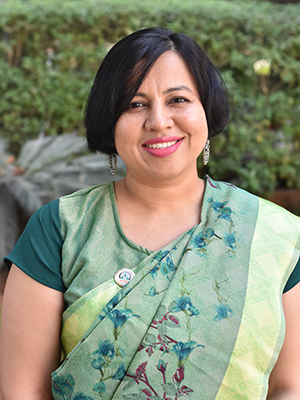
Dr. Meena Goyal
Professor
Qualification:CA, Ph.D, M.Com
Industrial Exp: 10 years
Academic Exp: 10.0
Research Papers: 10
Books Written:6
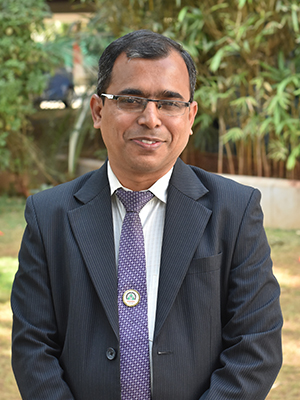
Dr. Parmeshwar Yadav
Associate Professor
Qualification:Ph.D, MA
Industrial Exp: 0 years
Academic Exp: 16.0
Research Papers: 7
Books Written:0